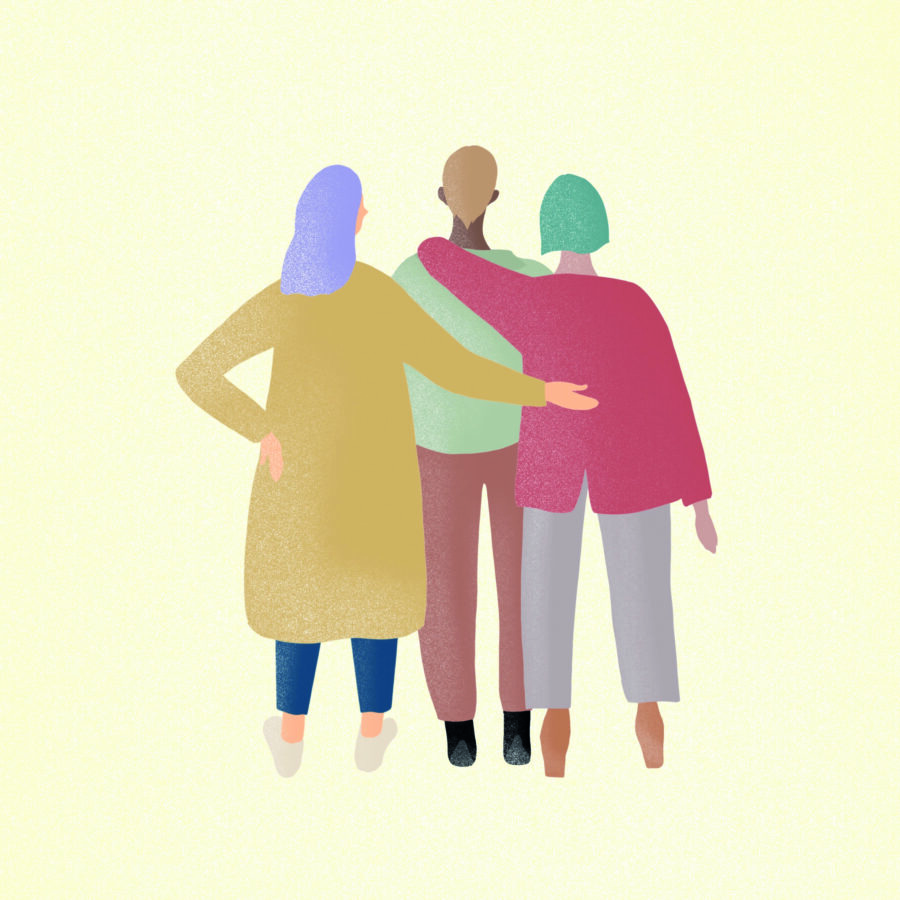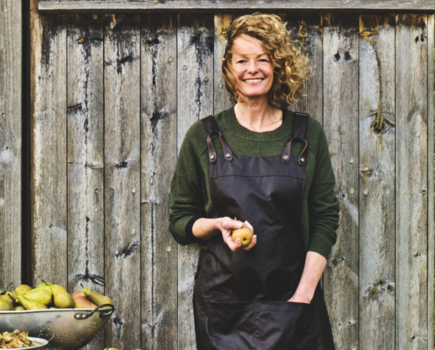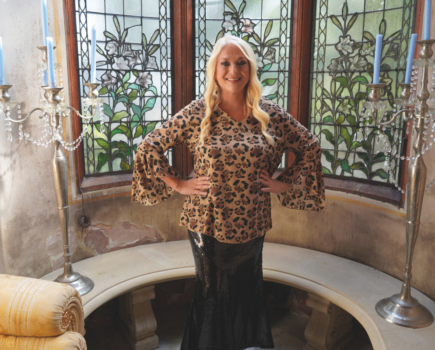As the cost of living in the UK continues to rise and more people are experiencing loneliness than ever before, concepts known as co-housing and homesharing are taking hold in the UK. Adrianne Webster speaks to the women living together in shared communities to find out more.

It’s become almost the natural order of things in the western world that as the years rolls by, and loved ones pass away, we can become increasingly isolated and lonely.
According to Age UK, two fifths of all older people say that the television is their main source of company, and we only need to look as far as our own elderly relatives and neighbours to see that this can be, for the large part, sadly true. As a society in the UK, we often care differently for our older generations than other areas of the world where intergenerational living is normal.
A study by Care UK found that a third of us wouldn’t take care of our elderly parents if they were ill, which hints towards the attitudes we have here. This may be due to geographical reasons — many of us in the UK have moved away from family for work or marriage, become settled, and it’s hard to travel back and forth to look after our loved ones when they live on the other side of the country.
Not only that, but with an ever increasing pressure on the care service — made worse by the pandemic — and the cost of living skyrocketing, options for living healthily and independently as we get older can feel increasingly limited. But some trailblazers have come up with a new option for the over 50s; co-housing.
A pioneering new look at housing: say hello to co-housing
According to membership organisation UK Cohousing Network (cohousing.org.uk), co-housing is an intentional community, “created and run by their residents. Each household has self-contained, private homes, as well as shared community space. Residents come together to manage their community, share activities and regularly eat together.”

Socially-distanced garden party at New Ground
The aims of many co-housing residencies are to support people to live independently, while giving residents the opportunity to socialise with each other through hobbies such as gardening and community work, and gain support from fellow residents. One such co-housing project is New Ground Co-Housing (owch. org.uk) in High Barnet, North London, whose motto is “a pioneering community for women”.
Jude Tisdall, 70, a New Ground resident and convenor of their communications team, explains, “New Ground was the first senior co-housing community with mixed tenure – that is both leasehold and tenanted flats. We range in age from 55 to 93, so in many ways we are intergenerational! “We moved in five years ago — it took 18 years to realise, from the very first idea of considering how to live as we got older, to bringing a group together, finding a site, planning, etc.”

Jude Tisdall, a resident at New Ground
There are 25 apartments at New Ground: 11 one-bedroom properties, 11 two-bedroom properties, and three three-bedroom properties, which include eight social rental units. There’s also a common room, guest room that can be booked out by visiting family members to stay over, a laundry area and attractive gardens. “Feeling part of the community doesn’t mean that you are living in each other’s pockets though,” says Jude. “New Ground has generous shared space, but your own front door is just that. If you want to do your own entertaining or just have some ‘down-time’ alone, that’s easy. The garden is really big and it’s easy to find a little private nook somewhere when you want a quiet read.”
Busting ageing stereotypes
New Ground lists its founding values on its website, and include ‘acceptance and respect for diversity’ and ‘care and support for each other’. One of the most driving values is ‘countering ageist stereotypes’. Jude explains, “I think the main thing is to have ownership over how we live as we age.
“Our oldest member is 93 and she still works, she still writes. She’s inspirational. “New Ground contradicts ageist attitudes — we are self-sufficient, forward thinking and have ownership of where and how we live. And community for us goes beyond ours.
The main thing is to have ownership over how we live as we age.
“We are actively part of the wider community, working and volunteering in our area of North London. “And even further afield — a group of women from New Ground will be travelling to Calais under the umbrella of the Steve Sinnott Foundation (stevesinnottfoundation.org.uk), having collected money and clothing needed.”
Sharing is caring
Another interesting way that women are rejecting traditional living norms is by living together in homesharing arrangements. Share and Care (shareandcare.co.uk) is an organisation that matches elderly people with vetted ‘sharers’ (often a younger person), with benefits to both sides — the sharer can live somewhere for a low-cost, the elderly person receives low-level care, and both provide each other with company and support.

Amanda Clarke, Share and Care
Amanda Clarke, one of the directors at Share and Care, explains, “We’ve been running a homeshare scheme since 2006. The idea is that we match an elderly person that needs some practical low-level support and company with a sharer, so that they can remain independent in their own home, and they live in the house like family friends.”
The idea is that we match an elderly person that needs some practical lowlevel support and company with a sharer, so that they can remain independent in their own home.
Many of the sharers signing up for their scheme are the over 50s, who are looking for a sense of purpose, a way to give back, or simply a way to live lowcost with company. “A lot of women in their 50s and 60s have signed up to us — perhaps they’re divorced, or they’ve looked after a parent and the house has been sold, and they think, ‘Right, what am I going to do now?’” says Amanda. “And they might go back to studying, or they might just think, ‘I want to have a different life for a while’. So, they come to us looking for a homeshare.”
“I also think the intergenerational idea of living together is becoming immensely popular,” she says. “Other European countries look at us like we’re crazy that we don’t look after our elderly people in this way — generations live together in many cultures across the world. “But it’s something that Britain has got out of the habit of doing, so in a way, homeshare replaces that because it gives someone else a chance to go and live with an elderly person, and hear their stories and enjoy their company, whilst giving them a bit of a bit of practical help.”
A helpful companion
Johanna, 56, is one such person. She has been living with Iris, 92, in London for two years now, starting their arrangement just before the pandemic hit. Johanna, originally from Sweden, used homesharing to help her study and make music in London while having a low-cost place to stay with lovely company.

Iris and Johanna
“I was living in a houseshare in London where I was struggling financially and I thought, ‘I’ve got to see if there’s another way of not paying so much rent.’ So I googled how to live cheaply in London to see if there was such a thing. And then this idea about co-living came up and I thought, ‘Wow, that’s such a good idea!’”, explains Johanna.
“I got in contact with Share and Care, and now I’m here with Iris. We’re in our second year together and it’s going really well.
“When you do a homeshare, you sign up for spending a minimum number of nights in the home, so it’s not like you can just kind of drop in every now and then — you actually are supposed to live here.
“It’s good that it’s regulated like this — you shouldn’t do too much and you shouldn’t do too little.
“Iris is 92, so she’s quite frail. She needs a little help with things around the house, and I help her with gardening because I love it. “I’d say it’s like being a companion to someone. We were together during the pandemic and I was lucky because it’s a very nice area where we live, with lots of green spaces, so I could go out to the park, so that was really nice.”
The way forward
The health effects of loneliness are well reported; a study published in Sage Journals stated that loneliness can increase your risk of death by 29%, and it’s also been found that loneliness has been estimated to shorten a person’s life by 15 years, equivalent in impact to being obese or smoking 15 cigarettes per day.
When considering this alongside our want for longevity and good health as the years roll by, it’s easy to see why we need to revolutionise the ways we live. As well as helping to reduce loneliness, co-living and co-housing can help give us a sense of purpose — helping out in the community garden or going shopping with a friend.
The purpose and sense of community that can come with sharing your life with others has also been proven to have positive health effects; data from ten studies involving 136,000 men and women revealed those with a higher sense of purpose were at lower risk of developing conditions such as coronary artery disease, strokes and heart attacks.
Co-housing and homesharing might not be the best fit for all of us, but looking at ways we can integrate intergenerationally and with other like-minded people will surely only become ever more popular, whether that be through volunteering, community work, living together or simply chatting to the people around you more.
For the women of New Ground, co-housing has given them the chance to bond with other women, to support each other through this sometimes-challenging life stage and, most importantly, to thrive through it.








